ANALYSIS
Reopened Imam Haron inquest provides dignified but inadequate version of delayed apartheid justice
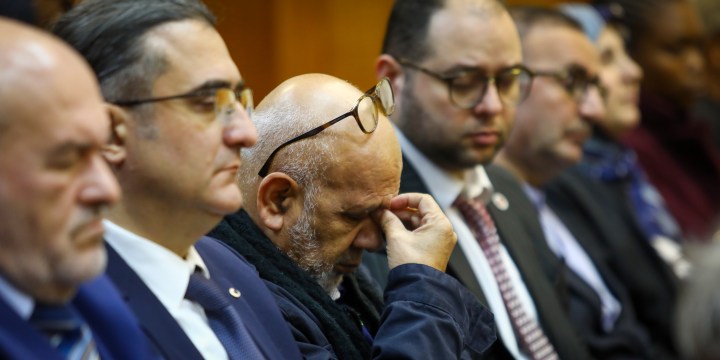
Justice delayed may not have to mean justice entirely denied – as has been made evident by the meaningful proceedings of the inquest into Imam Abdullah Haron’s death in apartheid detention more than 50 years ago.
Unusual scenes have played out in courtroom 20 of the Western Cape High Court this week.
There has been no accused person in the dock. At one point, a candle was lit in the courtroom to commemorate a recently deceased witness in the matter. During closing arguments given by advocate Howard Varney, concluding with the reading of a poem, the lawyer’s voice audibly cracked with emotion.
The usual categories of “defence” and “prosecution” have had no real meaning here. Standing to make submissions on behalf of the State, advocate Lifa Matyobeni told the judge: “We sing from the same hymn book.”
These were not adversarial legal proceedings. Indeed, at times they had the feel more of a lengthy memorial. This was the final act of the judicial inquest into the death of cleric and activist Imam Abdullah Haron, more than 53 years after his murder by apartheid police.
Read more in Daily Maverick: This week – inquest into death of anti-apartheid activist Imam Haron, Freedom Day and protest outside UAE Embassy
Haron’s inquest, together with those looking into other apartheid-era murders in recent years, raises the question: What form could justice possibly take, when it arrives half a century late?
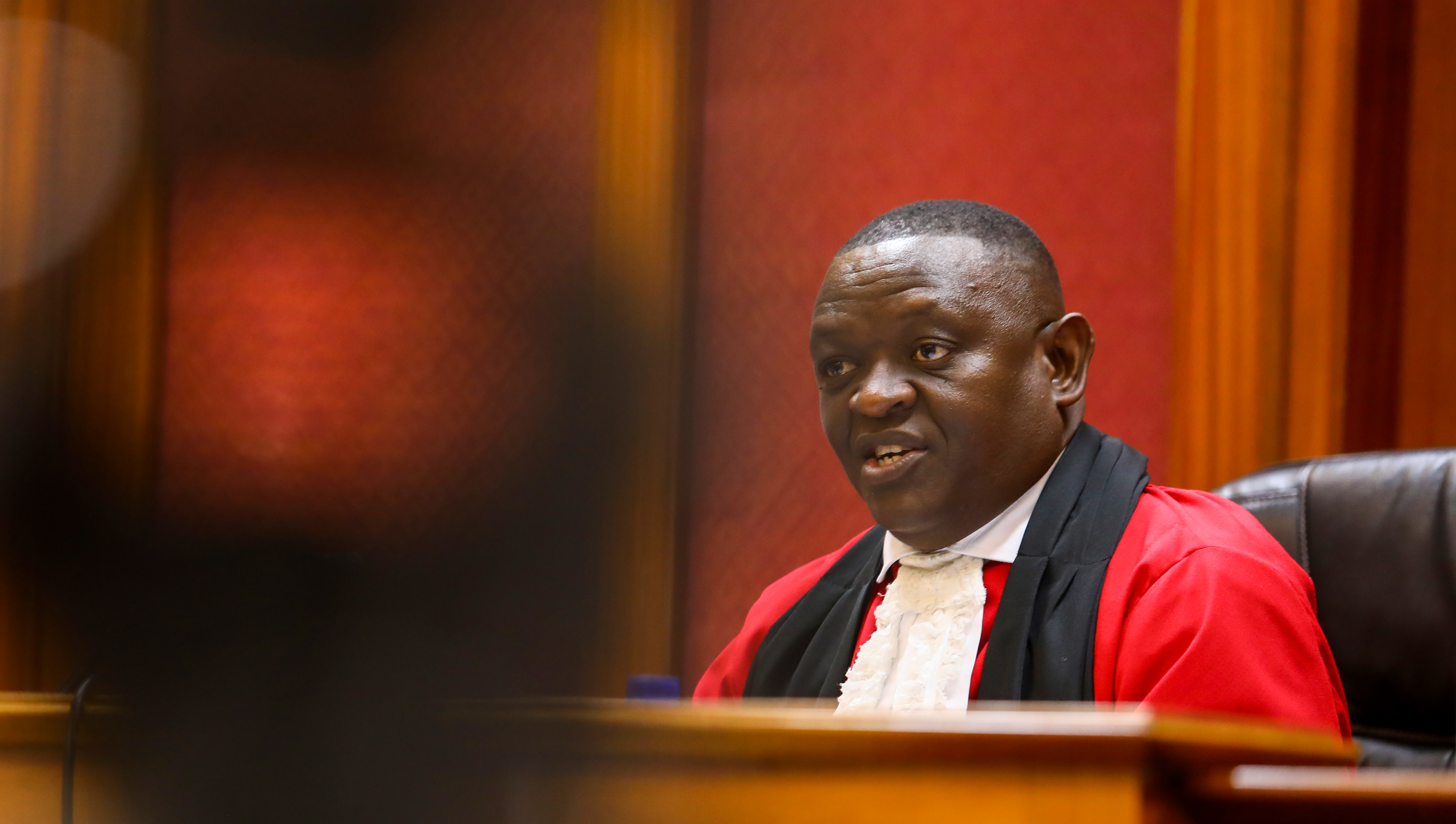
Judge Daniel Thulare during the Imam Abdullah Haron death inquest at Cape Town High Court on 24 April 2023. (Photo: Shelley Christians)
Post-apartheid state in odd position
These inquests, aimed at finally delivering truth and closure, place the post-apartheid state in a strange position. At the Imam Haron proceedings, that was exemplified by the person of Matyobeni: a young, black prosecutor expected to play the role of representing the South African state.
But which state? The state for which Matyobeni works as a National Prosecuting Authority (NPA) advocate is a world apart from the state which played host to the original inquest into Haron’s death in detention in 1970.
At the re-opened inquest, which began its hearings in November 2022, observers were reminded of the nature of that apartheid state – under which magistrates did not require a law degree, and under which magistrates, pathologists, doctors and policemen were often acting in concert under the diktat of apartheid’s feared Security Branch.
In those circumstances, the 1970 inquest into Haron’s murder would never be anything other than a grotesque sham.
By re-opening these cases, the NPA is attempting to remedy a decades-old injustice – but an injustice the current dispensation had no responsibility for.
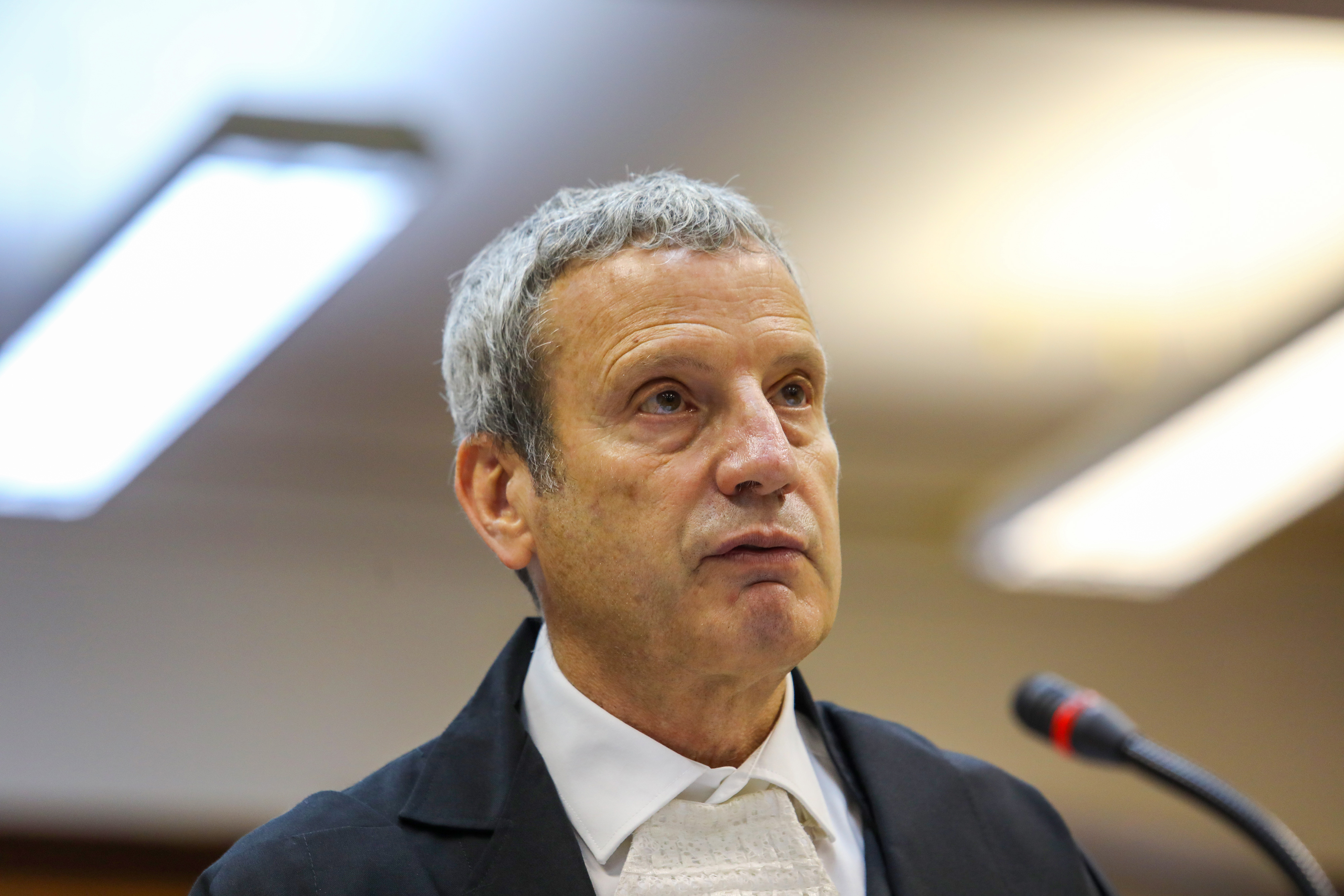
Advocate Howard Varney during the Imam Haron death inquest on 24 April 2023. (Photo: Shelley Christians)
Finally back for re-evaluation
This has produced some interesting issues. It has taken the post-apartheid state so long to bring these matters back to the courtroom for re-evaluation that many of the apartheid operatives directly responsible for these murders are long dead. In the case of Haron, the cleric’s chief torturer, notorious Spyker van Wyk, died in 1990.
But in other cases, some are alive – and have protested that they cannot afford legal representation. By law they must then be given access to Legal Aid assistance, however much it may stick in the craw that alleged apartheid murderers should receive support financed by the democratic state these men devoted their professional lives to trying to thwart.
There is even an argument that perhaps they should be entitled to legal representation funded by the South African Police Service, given that these men consistently plead that their actions took place in the line of duty, representing an earlier incarnation of the national police force.
Read more in Daily Maverick: A man of principle: The life and death of Imam Haron
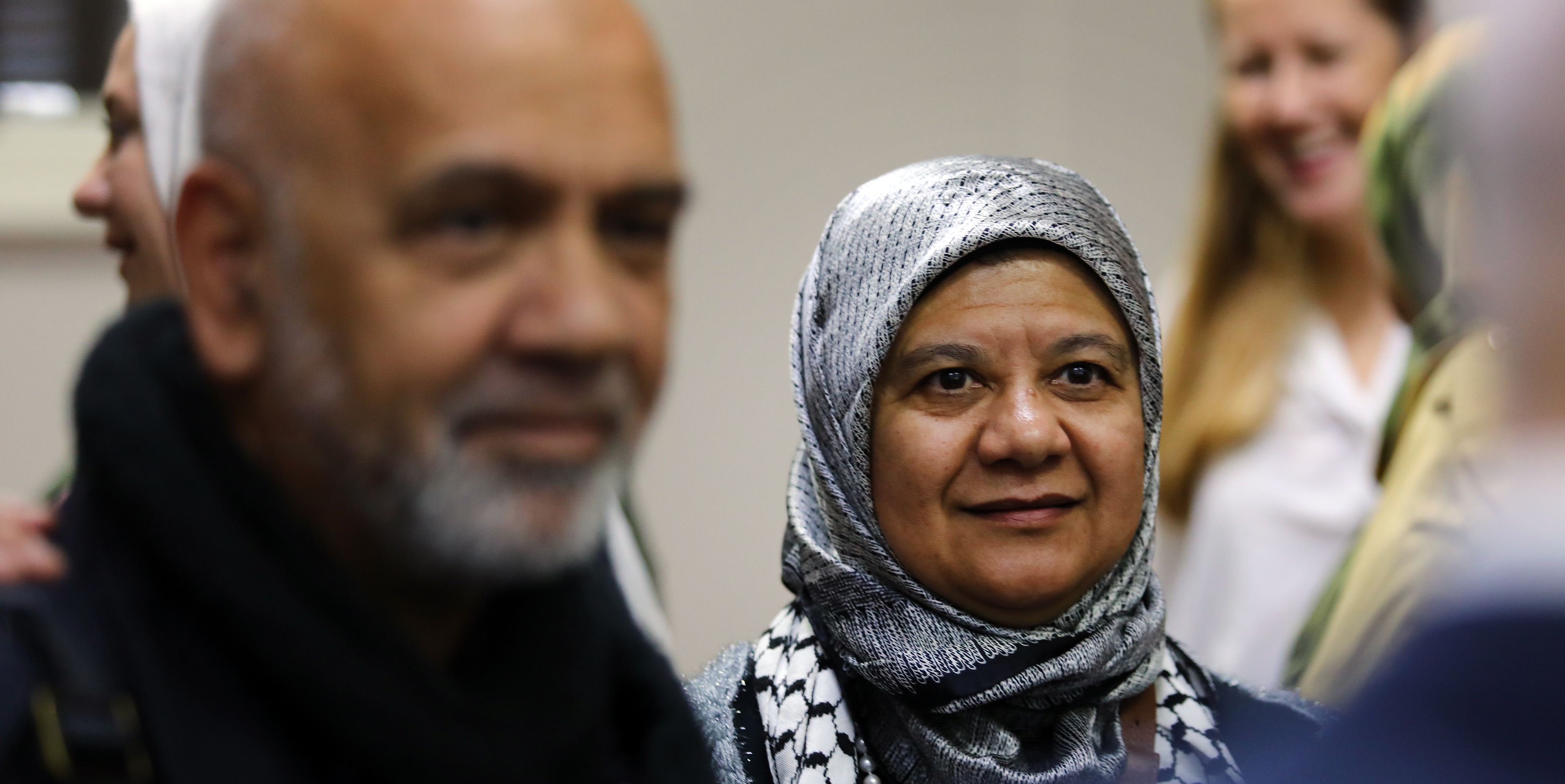
Siblings Fatiema Haron-Masoet and Professor Muhammad Haron before the start of the inquest about their father Imam Abdullah Haron’s death at Cape Town High Court. (Photo: Shelley Christians)
Profound punishment and forgiveness questions
In the case of the murder of Imam Haron, one of the policemen responsible for the imam’s guarding in detention is still alive: one Johannes Burger, now aged 78.
One can imagine that it must have been a shock to the system for Burger to be called out of retirement to account for his actions around Haron’s murder 53 years later.
In other post-conflict settings, the question of what purpose is served by convicting and incarcerating elderly people responsible for decades-old state-sanctioned atrocities has been seriously grappled with.
In what will probably end up being the final Nazi war crimes trial, concluding in December 2022, 97-year old Irmgard Furchner was convicted of being an accessory to 10,505 murders in her capacity as a secretary to a Polish SS commander during the Holocaust.
Furchner was spared jail, receiving a two-year suspended sentence. But six months earlier, a 101-year old man identified only as Josef S was sentenced to five years in prison by a court in north-eastern Germany after being convicted for serving as a guard at a Nazi concentration camp during World War 2.
South Africa’s apartheid hitmen, assassins, torturers and brutes have largely escaped justice altogether. But even in cases where the opportunity has arisen to bring charges, the current NPA has not exhibited much appetite.
Advocate Varney pointed this out in his closing arguments this week, saying: “In relation to the other reopened inquests dealing with apartheid-era cases, the NPA has not pursued criminal charges against individuals considerably more culpable than Burger. These involved actual Security Branch interrogators who lied under oath about their own involvement in torture.”
It was hard to summon up much pity for Burger, who claimed under oath in November last year that not only was he unaware of Imam Haron being tortured in detention under his watch, but that he also had no clue as to the feared reputation of the Apartheid Security Branch. And no inkling that abuse or torture of political prisoners ever happened under apartheid.
Clearly, this stretches credulity – raising the very real possibility that Burger, even at his relatively advanced age, could be prosecuted for perjury.
But Varney told Judge Thulare that the family of Imam Haron did not wish to see Burger prosecuted.
Burger was one of the youngest and lowest-ranking officers at Maitland police station in 1969 at the time of the imam’s death. Varney said: “There is a certain unfairness in holding a person of such stature as the only person criminally liable in such circumstances.”
Moreover, the family of Haron felt that prosecuting Burger would not bring them any peace; that during the just-passed month of Ramadan, forgiveness should be preached and practised; and that Burger “has his own conscience to live with in his advanced age”.
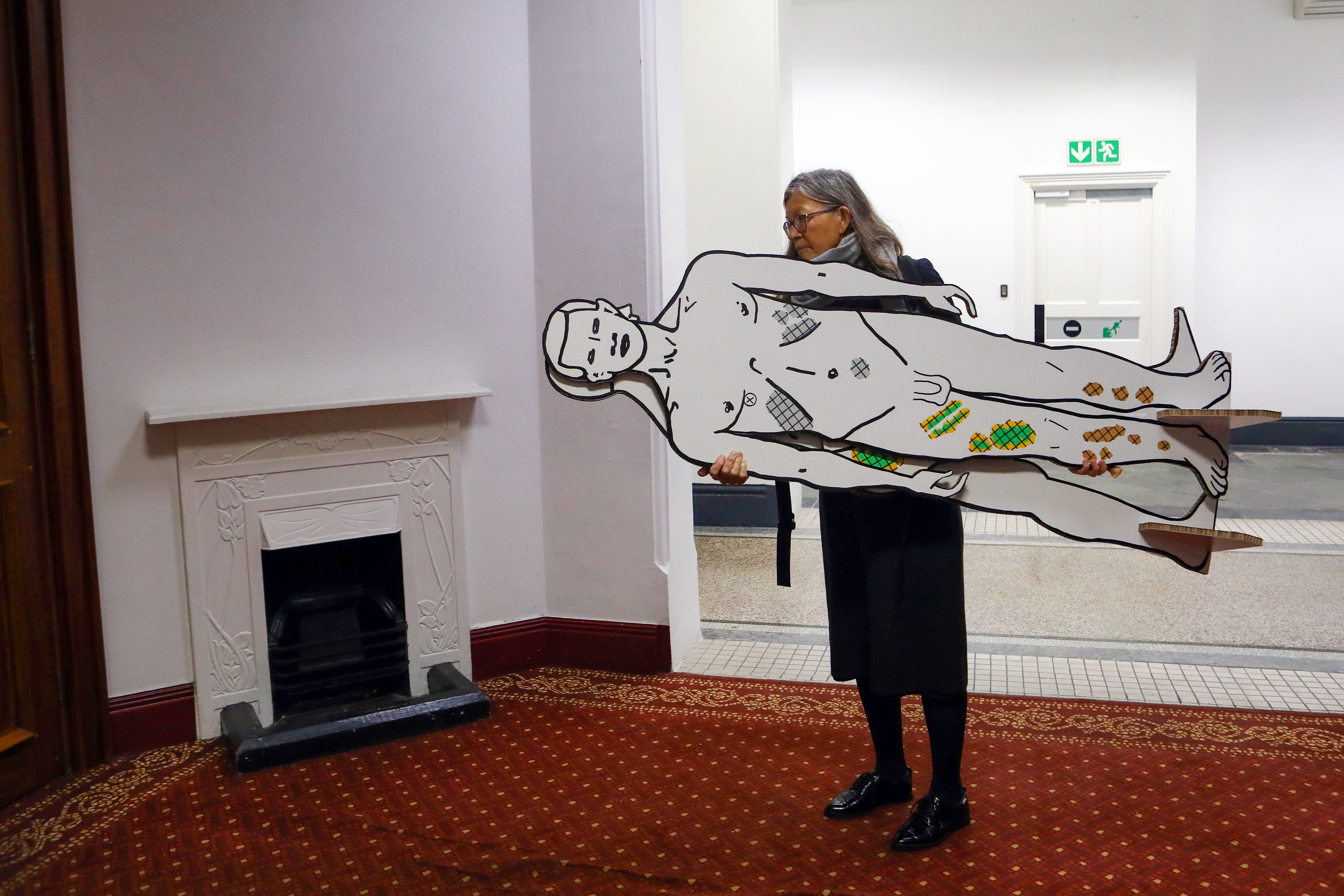
Odette Geldenhuys from Webber Wentzel carries life-size cardboard models on which Imam Haron’s injuries were represented in court. (Photo: Shelley Christians)
Posthumous shaming still sought
The major remedy available to the family of Haron all these years later, then, is a kind of posthumous shaming for those complicit in the cleric’s death and its cover-up.
This includes two district surgeons, Doctors Viviers and Gosling, and the chief state pathologist of Cape Town, Dr Schwar. The suggestion from the family’s legal team is that these men be posthumously struck from the roll of medical professionals.
In the case of the magistrate who presided over the inadequate 1970 inquest, Magistrate Kuhn, and the state prosecutor JS van Graan, the family has asked that they too be posthumously removed from the roll of legal practitioners.
They have also asked that the names of the Security Branch officers and policemen responsible for the “acts and omissions leading directly to the death of Imam Haron” be inscribed in the historical record as (in some cases first names unknown):
- Lieutenant Colonel Carel Johannes Freysen Pienaar;
- Major Dirk Kotze Genis;
- Major Kotze;
- Captain Ebanis Jogiemus Johannes Geldenhuys;
- Sergeant Johannes Petrus Francois “Spyker” van Wyk;
- Sergeant Andries van Wyk;
- Detective Sergeant Koen;
- Captain Pieter-Louis Malan;
- Sergeant Petrus Jacobus Rademeyer;
- Sergeant WA Smit;
- Constable Johannes Hendrik Hanekom Burger.
Is this sufficient redress for the brutal murder of an exceptional individual? Of course not. But so many years later, nothing could be.
There were few dry eyes in the courtroom this week, when advocate Varney gave his concluding statements, which are worth reproducing here:
Haron withstood the inhumanity visited upon him by the thugs in the Security Branch with civility and dignity. From what we have learned of his character, he probably did so with a twinkle in his eye. This would have enraged the insecure brutes interrogating him.
Haron never broke under interrogation. He betrayed no comrade. He was utterly dependable. He endured his final journey, not for himself, but for his comrades, and for us.
The Security Branch did crush Haron, the physical man. But they never crushed his spirit. In his last days he was a shadow of his physical self that his loved ones remembered so well. However, his enduring dignity and humanity remained intact till the very end. DM

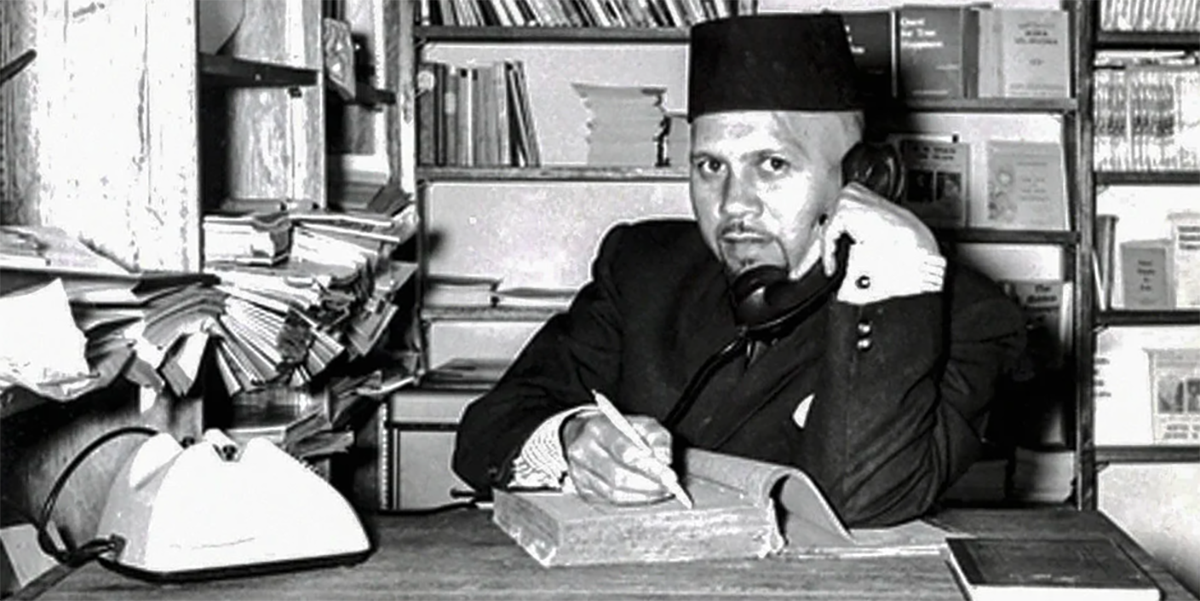




















 Become an Insider
Become an Insider
Comments - Please login in order to comment.